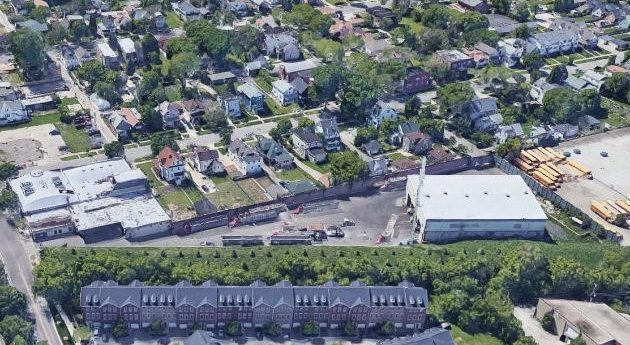$1.2 million allocated to projects to mitigate impacts of waste transfer station in predominantly African-American neighborhood
Evanston, Ill., a diverse Chicago suburb bordering Lake Michigan, faces a number of issues around environmental degradation and extreme weather. The problem faced in one predominantly African-American, middle-lower income neighborhood has been particularly vexing. For decades, residents there have complained of bad odors, traffic congestion and rodents surrounding a waste transfer station estimated to process 130,000 tons of solid waste each year. In addition to these more obvious nuisances, neighbors worry that the transfer station might be causing unknown negative impacts to their air quality, water quality, infrastructure, natural environment and health.
In 2016, residents thought they would finally see some progress made on these concerns when the City settled a lawsuit with the transfer station’s operator, granting the City $1.26 million. But the settlement allowed the facility to continue operating under a modified Host Community Agreement—and it remained to be seen how the funds allocated to the City would actually be used to address the environmental impacts suffered by the community.
In order to address these concerns, the community has organized to bring more awareness and focus to this issue. Activism and pressure on the City and station operator has remained strong over the years, taking the form of different groups and coalitions involving dozens of residents. Most recently residents have operated under the banner “Environmental Justice Evanston,” a committee of the local non-profit Citizens’ Greener Evanston.
Nearly two years later, the neighborhood is celebrating a City Council decision to approve $192,500 for environmental monitoring and evaluation work to begin. In addition, the Council allocated the remainder of the $1.2 million settlement toward projects in the neighborhood to help mitigate the impact of the station and its operation. It also designated all future funds from a new tipping fee on the station to be put toward projects in that area.
Kumar Jensen, Sustainability Coordinator for the City of Evanston, credits a partnership facilitated by the Thriving Earth Exchange with speeding the funding allocation process along. Lack of expertise and staff time had hindered the City’s initial efforts to determine how to use the funds. TEX helped Jensen tap the technical assistance of Gajan (Gaj) Sivandran, PhD, Clinical Assistant Professor in Engineering Science at Loyola University Chicago, to understand the community’s needs for monitoring and potentially mitigation. In addition, Mark Potosnak, PhD, Associate Professor of Environmental Science and Studies at DePaul University, volunteered to lend his expertise with air quality sensors.
“I am quite confident that, without having engaged with TEX and working with Gaj, getting to this point would have been much harder than it already was,” said Jensen. “His expertise and ability to work alongside community members and respond to their concerns during the planning phase are what helped build confidence in his recommendations, which allowed staff to develop a budget that City Council has now approved.”

